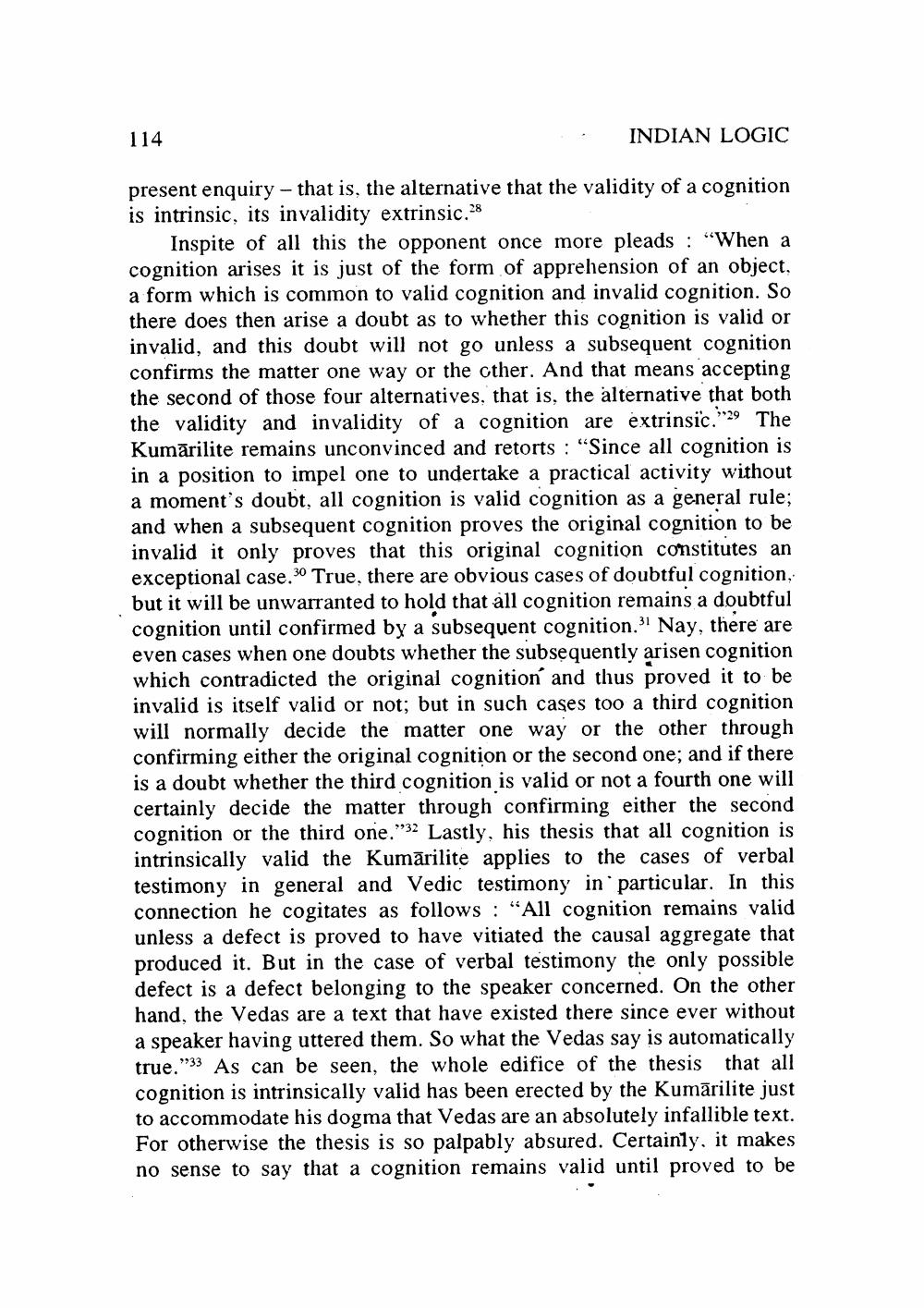________________
INDIAN LOGIC
present enquiry - that is, the alternative that the validity of a cognition is intrinsic, its invalidity extrinsic."
114
The
Inspite of all this the opponent once more pleads: "When a cognition arises it is just of the form of apprehension of an object. a form which is common to valid cognition and invalid cognition. So there does then arise a doubt as to whether this cognition is valid or invalid, and this doubt will not go unless a subsequent cognition confirms the matter one way or the other. And that means accepting the second of those four alternatives, that is, the alternative that both the validity and invalidity of a cognition are extrinsic." Kumarilite remains unconvinced and retorts: "Since all cognition is in a position to impel one to undertake a practical activity without a moment's doubt, all cognition is valid cognition as a general rule; and when a subsequent cognition proves the original cognition to be invalid it only proves that this original cognition constitutes an exceptional case. True, there are obvious cases of doubtful cognition. but it will be unwarranted to hold that all cognition remains a doubtful cognition until confirmed by a subsequent cognition." Nay, there are even cases when one doubts whether the subsequently arisen cognition which contradicted the original cognition and thus proved it to be invalid is itself valid or not; but in such cases too a third cognition will normally decide the matter one way or the other through confirming either the original cognition or the second one; and if there is a doubt whether the third cognition is valid or not a fourth one will certainly decide the matter through confirming either the second cognition or the third one." Lastly, his thesis that all cognition is intrinsically valid the Kumarilite applies to the cases of verbal. testimony in general and Vedic testimony in particular. In this connection he cogitates as follows: "All cognition remains valid unless a defect is proved to have vitiated the causal aggregate that produced it. But in the case of verbal testimony the only possible defect is a defect belonging to the speaker concerned. On the other hand, the Vedas are a text that have existed there since ever without a speaker having uttered them. So what the Vedas say is automatically true." As can be seen, the whole edifice of the thesis that all cognition is intrinsically valid has been erected by the Kumärilite just to accommodate his dogma that Vedas are an absolutely infallible text. For otherwise the thesis is so palpably absured. Certainly, it makes no sense to say that a cognition remains valid until proved to be




